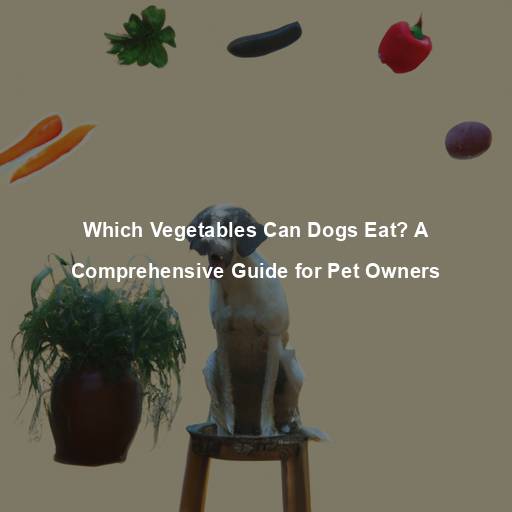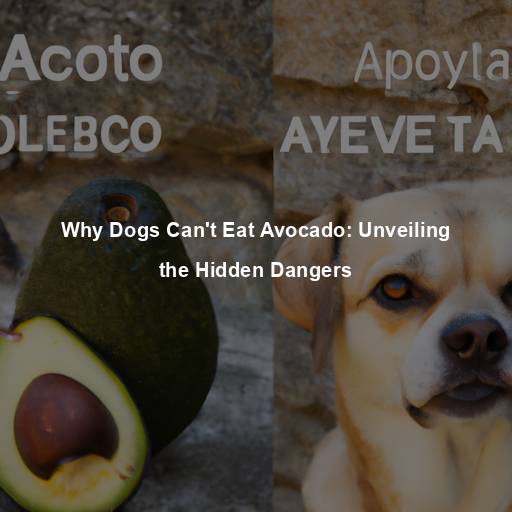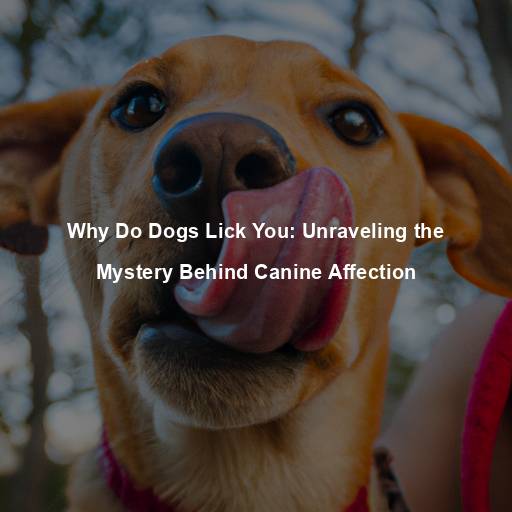Which Vegetables Can Dogs Eat? A Comprehensive Guide for Pet Owners
Last Updated on July 11, 2023 by Evan
Contents
- 1 Understanding Canine Nutrition: The Importance of a Balanced Diet
- 2 FAQs – Which Vegetables Can Dogs Eat?
- 2.1 Can dogs eat carrots?
- 2.2 Are peas safe for dogs to consume?
- 2.3 Are green beans suitable for dogs?
- 2.4 Can dogs eat broccoli?
- 2.5 Are sweet potatoes safe for dogs?
- 2.6 Can dogs eat spinach?
- 2.7 Is it safe for dogs to eat cucumbers?
- 2.8 Can dogs eat bell peppers?
- 2.9 Are tomatoes toxic to dogs?
- 2.10 Can dogs eat lettuce?
Understanding Canine Nutrition: The Importance of a Balanced Diet
As a caring and devoted pet guardian, it is only natural to want the absolute best for our four-legged companions when it comes to their diet. While dogs are notorious meat lovers, introducing certain vegetables into their culinary repertoire can yield numerous health advantages. Nevertheless, navigating the realm of dog-friendly vegetables can be quite bewildering, so it is of utmost importance to be well-informed about which ones are safe for our precious canines to munch on.
The Nutritional Value of Vegetables for Dogs
Discover the incredible power of vegetables and how they can work wonders for your furry friend’s health. Bursting with a delightful array of vitamins, minerals, and fiber, these nutrient-packed gems can truly revolutionize your dog’s well-being. From the mighty vitamin A to the rejuvenating vitamin C and the vitality-boosting potassium, these superstars provide a perplexing array of essential nutrients. Moreover, the fiber-rich goodness in vegetables harmonizes with your dog’s digestive system, ensuring a smooth and thriving gastrointestinal journey.
Safe Vegetables for Dogs
As pet parents, we always strive to provide the best for our beloved four-legged companions, and when it comes to their nutrition, vegetables can play a crucial role. However, it’s essential to be aware of the vegetables that are not only safe but also non-toxic for dogs. To help you make informed choices, we have compiled a list of some vet-approved vegetables that your furry friend can enjoy without any worries.
-
Carrots: Carrots are an excellent source of beta-carotene, which is converted into vitamin A in a dog’s body. They are also low in calories and high in fiber, making them a healthy and crunchy snack for dogs.
-
Green Beans: Green beans are rich in vitamins K and C, as well as fiber. They can serve as a nutritious alternative to commercial dog treats and can be beneficial for weight management.
Did you know that sweet potatoes are more than just a tasty addition to your dog’s meal? Packed with dietary fiber and essential vitamins like A and C, these wonder spuds offer a wholesome punch of nutrition. Whip up some delicious sweet potato treats for your four-legged friend and watch them wag their tail with delight!
Broccoli, a green powerhouse of nutrients, brims with a delightful mix of vitamins and minerals like vitamin C, vitamin K, and potassium. But here’s the twist – while it offers undeniable benefits, it’s wise to show some caution with this cruciferous wonder. Ingesting too much of this verdant delicacy might leave your digestive system in a bit of a quandary. So, savor the flavorful benefits, but remember to embrace moderation for a harmonious gut-to-broccoli ratio.
- Cucumbers: Cucumbers are a hydrating vegetable that can provide dogs with a refreshing snack. They are low in calories and contain essential vitamins and minerals, such as vitamin K and potassium.
Vegetables to Avoid Feeding Dogs
While some vegetables are safe and beneficial for dogs, there are certain vegetables that should be avoided due to potential toxicity or digestive issues. It is important to be aware of the following vegetables that can be harmful to our canine companions:
Attention all dog lovers and owners! It’s time to delve into the mysterious world of onions and garlic, and their potential impact on our beloved furry friends. Brace yourselves, for these seemingly harmless ingredients, in all their forms, possess a hidden power that can unleash chaos upon a dog’s delicate red blood cells. As we unravel this puzzling tale, be prepared to navigate through the treacherous path of prolonged ingestion, where the looming dangers of anemia and other grave health concerns await.
Avocado, the trendy green delight, has a darker side when it comes to our beloved furry friends. Bewilderingly enough, this seemingly innocent fruit holds a toxic substance called persin that can wreak havoc on our canine companions’ health – especially when consumed in alarming quantities. As if that wasn’t disconcerting enough, the perilous pit within throws another perplexing twist into the mix, posing a potential choking hazard. And let’s not forget the unsettling possibility of a digestive rollercoaster due to its high-fat content.
When it comes to tomatoes and our canine companions, it’s a bit of a mixed bag. While the juicy, ripe fruit is usually safe for dogs to munch on, the green parts can be a downright danger-zone. You see, those leafy stems and leaves contain a chemical called solanine, which can be toxic for our furry friends. So, if you want to share the tomato love with your four-legged pal, just make sure to remove all those green bits before serving it up.
- Mushrooms: Certain varieties of mushrooms can be toxic to dogs and may cause symptoms ranging from digestive upset to organ failure. It is crucial to keep dogs away from wild mushrooms and only offer safe, commercially cultivated ones if desired.
Preparing Vegetables for Dogs
When it comes to nourishing your furry companion with the wholesome goodness of vegetables, it’s crucial to navigate the maze of food preparation with finesse and prudence. To unlock the full potential of these verdant gems for your dog’s digestion and nutrient absorption, a touch of culinary know-how is indispensable. Here, we unveil a cluster of invaluable tips to help you expertly prepare vegetables for your four-legged companion, infusing their diet with a bouquet of flavors that will leave their taste buds delightfully tantalized.
-
Cooking: While some vegetables can be fed raw, cooking certain vegetables can make them easier for dogs to digest. Steaming or boiling vegetables until they are soft can be beneficial, especially for dogs with sensitive stomachs.
-
Chopping or Mashing: Chopping or mashing vegetables into smaller, manageable pieces can make it easier for dogs to consume and digest them. This is particularly important for smaller dog breeds or those with dental issues.
-
Avoid Seasonings: When preparing vegetables for your dog, it is crucial to avoid adding any seasonings, spices, or oils. These additional ingredients can be harmful to dogs and may cause digestive upset or other health issues.
Introducing Vegetables into Your Dog’s Diet
When introducing vegetables into your dog‘s diet, it is essential to do so gradually and observe their response. Some dogs may have allergies or sensitivities to certain vegetables, so it is crucial to monitor for any signs of digestive upset or allergic reactions. If you notice any adverse reactions, it is best to consult with your veterinarian.
Consulting with a Veterinarian
While vegetables can be a healthy addition to a dog’s diet, it is always recommended to consult with a veterinarian before making any significant changes. Your veterinarian can provide personalized advice based on your dog’s specific nutritional needs, health conditions, and any dietary restrictions they may have.
The Benefits of Vegetables for Dogs
Vegetables are packed with essential vitamins, minerals, and fiber that can contribute to a dog’s overall well-being. They can provide valuable nutrients such as vitamin A, vitamin C, potassium, and antioxidants. Additionally, the fiber content in vegetables can aid in digestion and promote a healthy gastrointestinal system in dogs.
FAQs – Which Vegetables Can Dogs Eat?
Can dogs eat carrots?
Did you know that dogs can indulge in the vibrant and crunchy delight of carrots? Unveiling a captivating blend of health and flavor, carrots emerge as a nutritious and delectable treat for our four-legged friends. With their low-calorie composition and abundant reserves of vitamins, minerals, and fiber, these orange wonders seamlessly integrate into a canine’s dietary regime. Furthermore, their inherent knack for assisting in dental hygiene by effectively scraping away plaque and tartar adds an unexpected layer of enchantment to the carrot’s benevolent allure.
Are peas safe for dogs to consume?
When it comes to treating your furry friend, peas can be a great addition to their diet in small quantities. Packed with essential vitamins like A, C, and K, as well as fiber and antioxidants, these little green powerhouses offer a nutritional boost. To ensure optimal digestion and prevent any tummy troubles, make sure to give your pup cooked or steamed peas – it’s a win-win situation for their health and taste buds!
Are green beans suitable for dogs?
Yes, green beans can be a healthy and safe vegetable for dogs. They are packed with essential vitamins and minerals while being low in calories, which can help your dog maintain a healthy weight or even aid in weight loss. Just make sure they are plain, without any added salt or seasonings, as such additives can be harmful to your pet.
Can dogs eat broccoli?
Dogs, like humans, can definitely delight in the occasional serving of broccoli, but there’s a catch – it’s all about finding that elusive balance. This verdant veggie boasts a smorgasbord of nutrients, from vitamins A, C, and K to fiber and antioxidants, that can help support your furry friend’s overall well-being. Yet, amidst this healthful feast lies a potential pitfall; stuffing your pooch’s plate with too much broccoli could result in an unwelcome serenade of gassy symphonies or tummy troubles. So, to keep the peace within their digestive system, it’s essential to treat them to well-cooked, unadorned florets that avoid any treacherous seasonings or sauces that may jeopardize their tail-wagging vitality.
Are sweet potatoes safe for dogs?
Yes, sweet potatoes are safe and beneficial for dogs to eat. Rich in dietary fiber and containing essential vitamins like A and C, sweet potatoes can support a healthy digestive system and boost the immune system. However, always serve them cooked, plain, and without any added sugars or spices, as certain seasonings can be toxic for dogs.
Can dogs eat spinach?
When it comes to pups and Popeye’s favorite leafy green, there’s no need to panic, but some caution is advised. While a few bites of cooked spinach won’t send Fido to the vet, it’s important to remember that too much of a good thing can be a burden. Oxalic acid, present in spinach, may throw a wrench in calcium absorption, calling for measured portions. So, go ahead and toss a leaf or two in Rover’s bowl, but be sure to keep a leash on the spinach extravaganza!
Is it safe for dogs to eat cucumbers?
Yes, cucumbers are safe for dogs to consume, as long as they are given in moderation. Cucumbers are hydrating and low in calories, making them a refreshing option during hot weather. However, make sure to remove the seeds and skin before offering them to your furry friend, as these parts can sometimes cause digestive issues.
Can dogs eat bell peppers?
Absolutely! Bell peppers are safe vegetables for dogs and can provide them with essential nutrients such as vitamins A, E, and C. These vitamins contribute to overall health, improve immunity, and aid in collagen production. However, it’s essential to feed bell peppers in moderation and remove the seeds and stems before offering them to your dog.
Are tomatoes toxic to dogs?
When it comes to the canine diet, the topic of tomatoes can be a perplexing one. The burstiness of opinions can make it hard to separate fact from fiction. Let’s clear the air: while the flesh of tomatoes itself is not toxic to dogs, it’s crucial to exercise caution. Tomatoes, being part of the nightshade family, have green stems and leaves that harbor a substance called solanine, which can be hazardous for our furry friends. While ripe, red tomatoes are typically safe in modest quantities, it’s advisable to steer clear of feeding any green parts or unripe tomatoes to your dog.
Can dogs eat lettuce?
Yes, dogs can eat lettuce, but it doesn’t provide significant nutritional value for them. Lettuce is low in calories and high in fiber, which can be beneficial for digestion. However, ensure that the lettuce is thoroughly washed, and avoid using dressings, seasonings, or any ingredients that could be harmful to your dog’s health.







